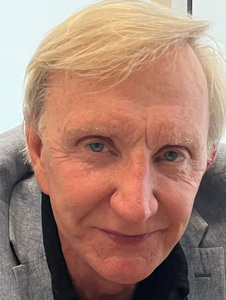World leaders, scientists, activists and many others are gathered in Brazil for the COP30 conference to set international goals and policies to mitigate the danger of unchecked global climate change. As a participant in many of these meetings throughout the world over the years, I can attest the faith voice is small but important at these conferences.
Why should Christians be concerned about climate change and environmental protection?
Billy Graham offered this answer almost a decade ago: “It isn’t just because of the dangers we face from pollution, climate change or other environmental problems — although these are serious. For Christians, the issue is much deeper: We know that God created the world, and it belongs to him, not us. Because of this, we are only stewards or trustees of God’s creation, and we aren’t to abuse or neglect it.”
Sadly, climate events since Graham’s 2017 statement have proved him prophetic: A 2025 Lancet Countdown report shows heat-related mortality has increased 23% since the 1990s, pushing total deaths to an average of 546,000 annually. Droughts and heatwaves are associated with an additional 124 million people facing moderate or severe food insecurity. Researchers estimate 640 billion potential labor hours were lost in 2024 at a cost of $1.09 trillion, and in the U.S. alone, the costs of heat-related deaths among older adults reached $261 billion.
There is a silver lining to this devastating news: People around the world are aware of the pressing need for climate change action. A 2025 survey published in Science Advances revealed 86% of people in 63 countries agree climate change is a serious threat and humans are the cause.
Reinforcing this finding, another survey of U.S. adults in May 2025 concludes that Americans who think global warming is happening outnumber those who deny it by a ratio of more than four to one (69% versus 15%).
“The majority of citizens want climate action but underestimate how many others share their views.”
The problem is a “perception gap” in which the majority of citizens want climate action but underestimate how many others share their views.
For example, a study published in 2022 showed while between 66% and 80% of adult Americans support efforts to protect the environment, these individuals assume only between 37% and 43% feel the same way. Thus, between 80% and 90% of the more than 6,000 adults surveyed underestimated public support for climate policies.
The same situation affects American Christian churchgoers. Important new research published in March 2025 in the Proceedings of the National Academy of Sciences reveals that among a representative sample of 1,600 religious leaders, most of whom were Christians, nearly 90% believe in climate change.
Yet, roughly half these leaders never discuss climate change with their congregations, so practicing Christians underestimate by 30 to 45 percentage points the extent to which their leaders believe in climate change.
Researchers call the shared misperception of how others think or behave “pluralistic ignorance.” They warn this phenomenon can result in a spiral of silence where people who are willing to act decide to do nothing.
But researchers also say this perception gap on climate action can be overcome. This is where people of faith have a unique role to play.
Christians believe in the small miracle of “converting” others through a respectful dialogue that relies on speaking with grace and listening with respect.
“I left a different person — not only believing in climate change but determined to make creation care a calling.”
I am an example of the power of this approach: For years, as the head of government affairs for the National Association of Evangelicals, I was a firm climate skeptic who doubted the reality of human-caused global warming. Then, in 2002, scientists at Oxford University invited me to the UK and with kindness, “schooled” me over days of discussion about the incontrovertible science about a warming planet. I left a different person — not only believing in climate change but determined to make creation care a calling.
Climate change is one of the most pressing issues we face today in this nation and around the world. But people-to-people communication can have a powerful influence on the beliefs and behaviors of others and Christians are uniquely poised to act — by raising awareness of the consequences of climate change, advocating for policies and sustainability measures that will protect the earth and supporting local projects that help communities affected by climate change.
In the Bible, Jesus tells us the most important commandments are to love God and to love our neighbors. Addressing climate change is vital to both — honoring God by being good stewards of God’s creation and loving our neighbors, especially the poor and marginalized who suffer most from the impacts of climate change.
This month’s COP30 meeting offers the chance to put Jesus’ words into action by heeding the countries most impacted by climate change and communicating to our own faith communities the importance of taking decisive action to protect God’s creation.
We must not ignore or dismiss the climate warnings issued by the scientific community, because as Revelation 11:18 warns: “It is time to destroy all who have caused destruction on the earth.”
Richard Cizik serves as executive director of Evangelicals for Democracy, which brings together people of faith — Republicans, Democrats and independents of all walks of life — who believe that as Americans, we are stronger and more resilient together than when we are divided.
Related articles:

